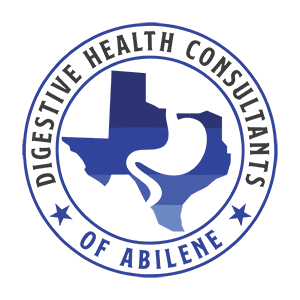GENERAL
GASTROENTEROLOGY
Reflux (GERD), Eosinophilic Esophagitis (EoE), Esophageal Motility Disorders
Acid Reflux (GERD) – GERD is an acronym for gastroesophageal reflux disease and is also known as chronic acid reflux. This occurs when stomach acids travel back up to the esophagus. It’s normal to experience acid reflux every once in a while, but if you experience it more than 2x a week, it may be time to see a physician.
Eosinophilic Esophagitis (EoE) – EoE is a chronic immune system disease. It causes the esophagus to become inflamed and prevents it from closing properly leading to symptoms of difficulty swallowing (dysphagia), food becoming stuck in the esophagus, and regurgitation.
Esophageal Motility Disorders (EMD) – EMD is a disorder that can cause difficulty swallowing (dysphagia), pain, or regurgitation of food. The most common conditions that cause EMD are achalasia, esophageal scleroderma, and esophageal stricture.
Abdominal pain can be secondary to a broad range of digestive disorders which could include gastritis, peptic ulcer disease, pancreatitis or gallbladder dysfunction.
Gastritis occurs when there is inflammation in the soft lining of the stomach. This lining acts as a protective barrier in the stomach, so, when this is disrupted, a broad range of symptoms can develop including nausea, early satiety, discomfort and secondary weight loss.
Celiac disease occurs when you experience digestive issues after ingesting gluten. The food intolerance causes your immune system to target gluten within the small intestine resulting in inflammation and functional dysfunction of the organ.
Gastroparesis is a functional disorder that occurs when there is partial or complete paralysis of the stomach. An underlying nerve disorder results in secondary muscular weakness and a delay in the emptying of the stomach. This prolonged retention of ingested material and delay in neutralization of acid within the stomach can result in a spectrum of upper gastrointestinal symptoms.
Functional Dyspepsia occurs when there are symptoms of indigestion (bloating, cramping, belching) without an identifiable disorder based on current laboratory and imaging testing.
FODMAP Diet Information
What Is the FODMAP diet?
FODMAP is an acronym that stands for fermentable oligosaccharides, disaccharides, monosaccharides, and polyols — a group of short-chain carbohydrates (sugars) that the small intestine has difficulty absorbing. Nonabsorption of these sugars can lead to bacterial fermentation and dyspeptic symptoms. The FODMAP diet is ideal for people who experience functional dyspepsia and/or diarrhea.
Download the FODMAP PDF Here.
Inflammatory Bowel Disease (Chron’s, Ulcerative Colitis)
–Crohn’s disease is a type of inflammatory bowel disease and causes inflammation in any part of the digestive tract from the mouth to the anus.
-Ulcerative Colitis is another type of inflammatory bowel disease that is limited to the colon/large intestine. Either condition can result in abdominal pain, severe diarrhea, fatigue, weight loss and malnutrition.
Get screened regularly: Regular screenings can help detect precancerous growths or early-stage cancers that are amenable to endoscopic therapy/resection. Follow your healthcare provider’s recommendations for screenings based on your age, family history, and risk factors.
Colon Cancer Prevention
Prevention is worth a pound of cure and there are several ways you can reduce your risk for colon cancer.
- Get Screened Regularly: Regular screenings can help detect any precancerous growths or early-stage cancers and treat them before they spread. Follow your healthcare provider’s recommendations for screenings based on your age, family history, and risk factors.
- Eat A Balanced Diet: Include plenty of fruits, vegetables, and whole grains in your meals and limit intake of red meat.
- Exercise: Moving your body has multiple health benefits and reduces your risk for many illnesses including colon cancer.
- Avoid Smoking And Drinking: Both alcohol use and smoking increase your risk for colon cancer significantly. But if you do choose to partake in the occasional libation the American Cancer Society recommends no more than 2 drinks a day for men and 1 drink a day for women.

